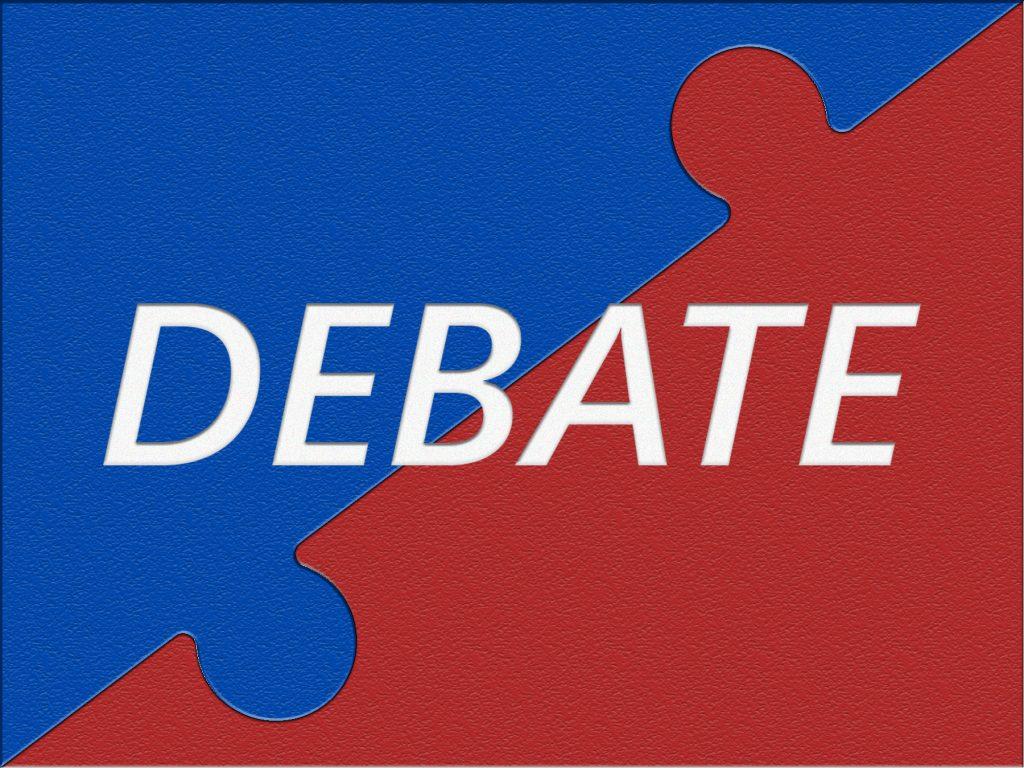Round 1
Side 1: How often do you find yourself pulling out handfuls of pennies when trying to make change? We all know this pain. They weight down our pockets, wallets and purses. When they pile up, we have to take the time to count them out to get rid of them. They’re more trouble than they’re worth. You can’t actually buy anything with pennies unless you use a lot of them, which just makes the cashier hate you. Vending machines and other automated processes won’t take them either. Granted, with more people using payment methods like credit cards, it’s a little less of a problem, but it still exists. When minting pennies, our government spends almost twice the batch of pennies’ worth. Is it really such a good use of federal spending and time to do that? Why not get rid of the penny altogether?
Side 2: Yes, pennies can be annoying, but that doesn’t mean we ought to get rid of them. If we did, the smallest unit of currency would be the nickel. This is problematic for a couple reasons. First, the nickel costs about 16 times its worth to be minted, so if we made that the smallest unit and minted more because of that, our government would lose even more money. Second, we’d lose more money as individuals. Why? Because businesses would now have to make all of their products and services cost multiples of five cents. And, really, what’s the likelihood that they would round down the costs? Not very likely. This would only give them another excuse to hike up the prices and make us spend more. How beneficial would that be?
Round 2
Side 1: There are a lot of things to address here, but let’s start with rounding prices. Data from Canada, New Zealand and U.S. history has shown that if the economy is relatively steady, removing small units that are pretty much useless doesn’t affect the economy much. In fact, when the U.S. got rid of the halfpenny, it had as much purchasing power as 14 cents would have had in 2015. And yet, commerce didn’t change all that much! Now, how that affected the lower-income brackets, I’m not sure. But in terms of the overall economy, it looks like it could work out pretty well to get rid of pennies. And, in terms of charity, if the nickel were the smallest unit, we would actually be giving five times the amount we had before, so even if we give fewer coins, we’d probably be giving more money.
Side 2: Another problem with removing pennies and the subsequent rounding of prices is that it will most likely affect the poor more than the rich. They are more likely to pay with cash than card and are more affected by small price hikes since their income is limited. Also, on a similar note, minting costs and rounding costs aren’t the only issues. Another important one is charity. How often have you seen penny drives for various events and causes? They’re not uncommon. But if we got rid of the penny, people would be less likely to give to these drives. Not just because the coin collected would no longer be around, but because the next smallest unit would be five times the amount. So with fewer pennies comes less money for charity. How does that help anyone?
Round 3
Side 1: Not only would removing the penny from circulation be unlikely to cause economic issues or subvert charity, but it would also help with the environment. Pennies are mostly made up of zinc, with some other toxic metals like lead and cadmium thrown in. This means, in order to make pennies, we have to mine lots of zinc. But, zinc is harmful to plants, animals and people in large amounts, so mining contaminates the surrounding area. If we weren’t making pennies anymore, there would be less of a demand for zinc so there would be less contamination. They also take a lot of energy to produce, and since they’re worth so little, it’s incredibly harmful in proportion to their value. If we focused our production on nickels, or even on dimes (which has a production cost of only four times their worth), then we’re saving some time and energy, and avoiding some pretty harmful materials.
Side 2: The idea that removing pennies from circulation will help the environment is great, but have you ever stopped to consider that the other monetary units could also be harmful to the environment? Nickel is an environmental pollutant and can be harmful to our health as well, so to argue that minting more nickels to replace pennies in order to limit environmental pollutants is absurd. If we’re going to go that route, we need to find materials that are cheap, non-toxic and environmentally friendly for all of our currency and then debate what units are worth keeping. If we can’t do that, we shouldn’t be debating this issue from an environmental standpoint at all. Yes, maybe there are valid reasons to get rid of the penny, but there are just as many valid reasons why removing them is pointless. So, until we can come up with something a little more impactful, why make that change?





